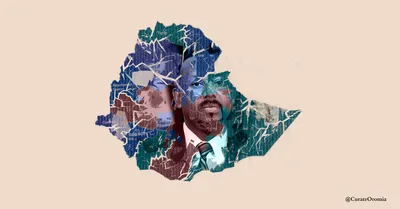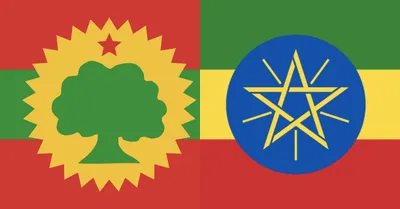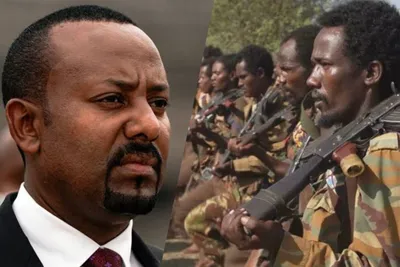The Abiy Project: A conversation with Tom Gardner
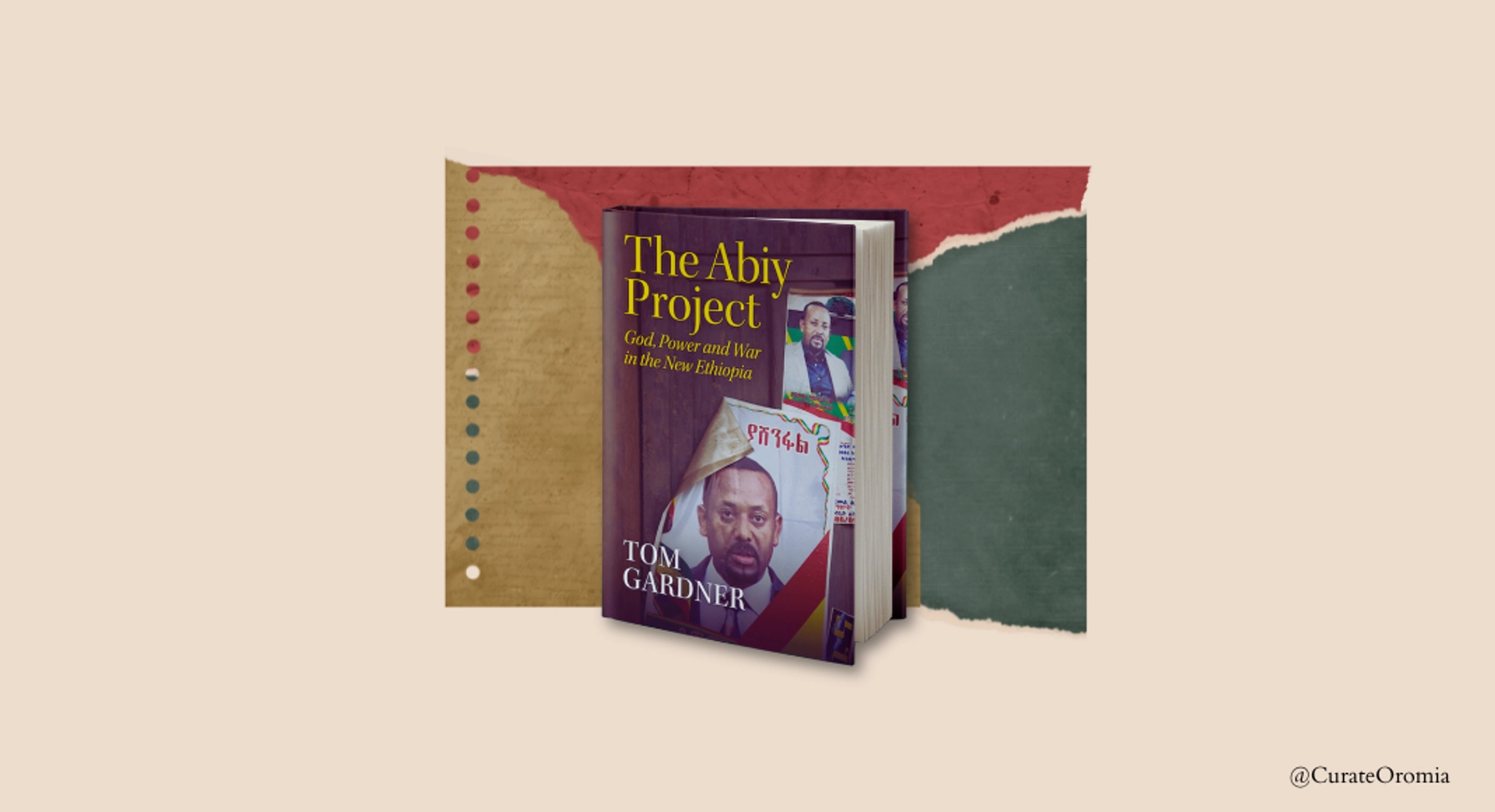
Tom Gardner is the Economist’s Africa correspondent based in Ethiopia from 2016 to 2022, where he early on covered anti-government protests, then eventually the reform that brought Abiy Ahmed to power and global spotlight. Tom tracked the Prime Minister’s ascent, as the previously unknown figure went on to win the Nobel Peace Prize and stunned the world by plunging the country into a devastating war that claimed the lives of half a million people. Tom himself was expelled from Ethiopia in May 2022 for covering that war.
He has since published a book, titled “The Abiy Project: God, Power and War in the New Ethiopia.” He spoke with Curate Oromia about this tumultuous period, about the man at the center of it, and about the current state of affairs in Ethiopia and the Horn.
Tom, thank you for agreeing to this interview. Before we begin, how did you move to Ethiopia?
I flew out in October 2016 during the Oromo protests, the morning after the Irreechaa stampede and the start of ‘the week of rage’ as it was known. I came as a correspondent for the Economist, but I was going to be freelancing a bit for some other publications, including the Guardian and a few others. Thomson Reuters Foundation, which had a particular interest at the time in land issues which was and remains a big issue in Oromia as well as other parts of the country.
So, that’s when I arrived, but obviously I had been following the Oromo protests. But I don’t think (and by then it was also the Amhara protests) at that point I fully grasped the scale of what was happening. Most outsiders, the people I would have spoken to when I first arrived there in Addis Ababa would have probably downplayed the significance. There was an assumption that the EPRDF was strong enough to handle them.
The general perception was that the EPRDF was a strong state with a pretty fearsome security apparatus, and that once the state of emergency was in place that would buy them time to pursue some reforms that might take a sting out of the Oromo protests, but that fundamentally, not much was going to change or maybe needed to change. That was the prevailing opinion among Westerners or the Addis Abeba establishment.
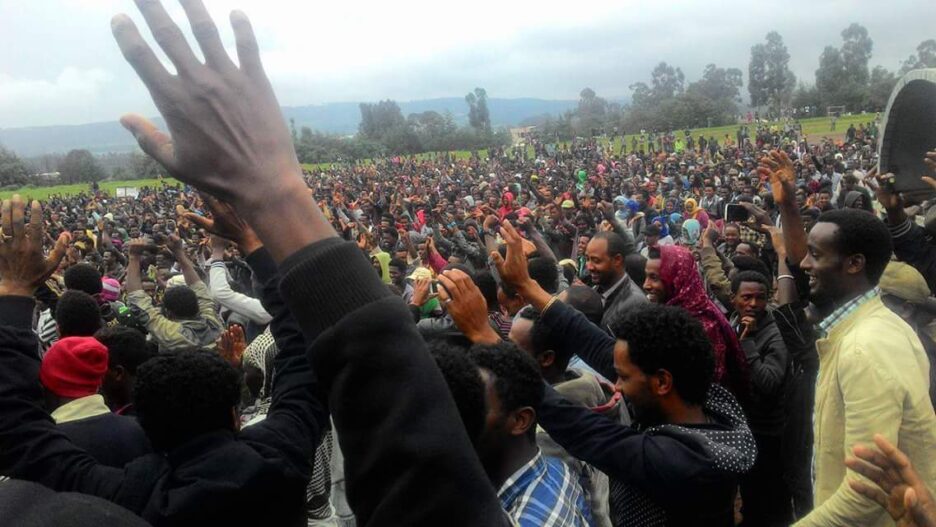
So I didn’t immediately grasp the historic significance of the Oromo movement and it was only after spending longer there, speaking to more and more Oromos, and after the state of emergency ended in 2017 and the protests resumed that it started to become clear that this wasn’t going to go away and that something had to give.
CO: That has always been a problem. The diplomatic community and journalists are mostly confined to Finfinne, and that can limit their understanding of the country. The environment the city offers is also very homogeneous. Did you get a chance to travel in Ethiopia during your stay? Meet more people?
I hope so and I hope that comes through in the book. I’ve tried to critique the Addis Ababa consensus that prevails, which is also shared by much of the international community in Addis Ababa. I covered the Oromo protests more widely than others. I was also the only foreign journalist, me and one colleague from AFP, that managed to get to Wallaga in 2020, and I also went to Guji on separate occasions. I was able to cover the OLA insurgency as well and put that in the spotlight. And I’m not suggesting I was able to do so as extensively as I would have liked or was necessary.
The lack of coverage of what is happening in Wallaga and Guji was then, and remains, a major gap. But I certainly tried to see. I used to go to Ambo a lot. I would say I traveled quite extensively around Oromia, but of course I also tried to travel to different corners of the country as well. Somali region, Amhara, Tigray, the south as well. The problem of covering Ethiopia on your own, after 2018 in particular- the proliferation of crises stretched everyone. It stretched my resources as well, but I believe I did manage to do my best to get out of the Addis Abeba bubble.
Certainly, that’s what I prided myself on or was at pains to do. One of the problems particularly after 2020, was that Oromia became even harder to travel. Once you get beyond Shawa, it became harder to travel almost anywhere else in the country. This doesn’t get reported enough, foreign or local Journalists these days cannot get permits from the government to travel anywhere in Oromia. It’s simply not safe enough to do so without and probably isn’t safe enough to do so even if you had one. As you know, these days, it’s not just those areas which are really far from Addis; it’s all over. Insecurity prevails.
CO: We can now turn to the book. Why was it important for you to write this book?
Back in 2020 it was a book in my mind broadly about the fading hopes of the transition. But I also wanted to spend a lot of time charting the rise of the Oromo movement, the Qerroo, and that is a part of the book. Once the war happened in Tigray, the focus became increasingly about that trajectory and the path to war and then, significantly also covering the war itself. I decided to focus on the figure of Abiy quite late in the day. It wasn’t until almost the start of when I actually sat down to write it that I decided to focus on the figure of Abiy, not because the book doesn’t go beyond that and I hope when people get a chance to read it they see it isn’t simply a biography of Abiy.
But for better or for worse, Abiy has personalized the transition, turned himself into the preeminent decider in government and in determining the country’s fate. I argue in the book that he has personalized decision-making to a degree probably unprecedented since Haile Selassie. And even if he hasn’t quite achieved that, that appears to be his ambition. As much as he is a product of the society which made him and he is constrained by history and structures and economics, he is a defining figure of this period of Ethiopian history. I felt there was a need and an interest in the question: Who is he and what does he want? It was a question I wanted an answer for. I also felt it was a question people in Ethiopia and anywhere else, who were following this period closely, wanted an answer to.
CO: At the ceremony where he received the Nobel Peace Prize, he was introduced as having an Oromo father and an Amhara mother. He then came home and gave an interview in Afaan Oromoo to OBN, the regional state media, and said both of his parents are Oromo. Several Oromo artists since 2018 have released songs consistently portraying confusion and uncertainty about his identity as a recurring theme. All of these factors, coupled with the brutality of his policies in Oromia, have raised questions as to whether Abiy is who he says he is. Does your book offer any clarity to this issue?
I’m going to start off by saying that people who are hoping for absolute, definitive answers to these questions will be disappointed. What I realized as I was reporting and writing was that the mystification of his origins, obfuscating and muddying the details of his past, all of that, is pretty intrinsic to his political persona and his style of politics. He has deliberately obscured his origins. He has purposefully told different things to different audiences, sometimes in different languages. The contradictions that we can all see in his rhetoric and his actions, to some degree, is part of his strategy. He deliberately confuses and confounds, and that’s something I put in the preface of the book.
CO: Ahmed Ali, Abiy’s late father, has also given an interview to OBN describing him in a way that implied that he is not his biological son, saying, “I raised him like my own children.”
All this gets mentioned in the book and I offer some judgments or an assessment. I do point out that, at the very least, he clearly had a bad relationship with his official biological father. I note that many people have questioned if he is in fact his biological father and that Abiy has not done much to put those rumors to bed. And I also include some quotes from others who said he told them someone else was his father. So I cannot offer definitive proof, but I point out that these are quite well-founded questions or doubts that people have about his official biography.
CO: From your research, what do you think Abiy’s political ideology is and what is his vision for Ethiopia? Because at times he presents himself as someone who wants to keep the federal structure, at another an emperor, and sometimes he is a military dictator in the style of Mengistu Haile Mariam.
I do argue that he has a vision of sorts. I push back against the idea that he is the caricature of the African big man, for whom it is all about amassing power and wealth. That’s part of it, but he has some kind of vision. That’s not the same as saying he has a clear policy agenda or a clear ideological program. It’s a highly idiosyncratic, partly religiously-inspired vision, and it is also riddled with contradictions. But it’s also highly personalized. So that’s why he doesn’t fit neatly into the established boxes available for understanding Ethiopian politics.
That being said, I do make the argument that he is an idiosyncratic Ethiopian nationalist first. One of the consistent themes in his writings and public statements is a critique of the Ethiopian Student Movement and the challenge they presented to the traditional understanding of what Ethiopian history and identity is. So that’s actually pretty consistent. He quite clearly regards Ethiopia as a great old nation, perhaps 3,000 years old. He pays lip service to the idea of nations and nationalities, but first and foremost, he does believe that there is a sort of essential Ethiopian identity and that means, at root, he is better understood as an Ethiopian nationalist.
But, as I say in the book, it is a form of Ethiopian nationalism, he tries to incorporate some Oromo nationalism into it. He has quite consistently articulated the idea of Oromos as being crucial to Ethiopia’s nation-building project. He has sought to rehabilitate imperial Oromo figures like Ras Gobana, for example. These things are quite consistent. That’s the kind of ideological lens through which he approaches Ethiopian history and he places himself clearly within the pantheon of Ethiopian emperors. That’s also pretty clear and I lay that out in the book. I mean he quite clearly sees himself as inheriting the Imperial mantle from Haile Selassie.
CO: What about the diplomatic community in Ethiopia? What was their understanding of his leadership?
I believe the diplomatic community is also struggling to make sense of these contradictions. I am consistently critical throughout the book of the response of the international community to the way they embraced Abiy, the way they projected onto him this idea of a liberal democratic leader. I’m critical, of course, of the Nobel peace prize and the general lack of knowledge and understanding within the diplomatic community of Ethiopia’s political system and the various currents within Ethiopian politics. They bought into the carefully and deliberately cultivated myth of his indispensability. There are some quotes in the book from diplomats expressly saying that Abiy is the only realistic option for Ethiopia.
So there was a combination of naivety, ignorance and wishful thinking and then later on, once it had become quite clear what a train wreck his administration was, then there was, to quote one ambassador at the time, ‘egg-on-the-face syndrome,’ where the diplomatic community realized that they have messed up but were unwilling to admit to it.
CO: How did they get him wrong?
Well, I mean first off, of course interests also matter and it’s not always the case that a human rights abusing leader is going to be dealt with appropriately by the West, just because he is violating human rights. It clearly would be naive to imagine that. But I also make this point in the book: don’t underestimate the institutional ignorance in Western embassies. They come and stay for a short period. There’s a lot of turnover in Ethiopian embassies quite early. The foreign staff are quite often early career.
They don’t know, they haven’t been around the block. They don’t know the region, and they are then very reliant on local analysts and experts who often staff the embassies who typically do have an urban/Addis bias.
CO: Dictatorship is a group exercise, even though focus is often exclusively given to totalitarian leaders of states. Some say “If Abiy is gone, Ethiopia will return to peace.” Is Abiy a one man show?
As I’ve said, he has personalized power and decision-making to an exceptional degree and therefore the course of history over the last few years would have looked significantly different were he not in power. In that respect, it is a one-man show. Nonetheless, it would be extremely naive to imagine that you remove Abiy from power and that is a problem solved. In a sense, the myth of Abiy’s indispensability becomes self-fulfilling, possibly deliberately on Abiy’s part. He has made it very hard to imagine a smooth transition to an alternative regime, through his strategy of divide and rule, through the way he has disoriented, disorganized, and crushed the opposition. All serious opposition is now outside of the country. Let’s not romanticize the EPRDF, but he has weakened institutions. He’s further weakened the checks and balances. So whatever happens after he’s gone, it’s going to be very difficult to put the country back on a stable footing.
Co: How have the interests and influences of foreign powers in the Horn of Africa changed since 2018 and since the Tigray war?
There are three periods. There’s the 2018 to 2020 period; it’s the Trump period. It’s also the Michael Raynor period, which was the era of international embrace of Abiy. There was a lot of interest in Ethiopia in Abiy but at the same time, Africa was not a priority of the US government at that point. So there was a bit more room for the embassy diplomats on the ground to shape policy, because there wasn’t a strong steer from the White House.
Then 2021, the Biden administration comes in. You have quite a significant shift, as I argue in the book. The Biden administration actually took the situation in Ethiopia pretty seriously. Ethiopia was only second to Afghanistan in Biden’s foreign policy emergencies to deal with. I don’t think the Pretoria Agreement would have happened without US involvement. But this period didn’t last that long.
Once the war in Ukraine began and now Gaza, Ethiopia and Africa slipped right down the agenda, not just in Washington but across the world.
That’s where we’re at now, a massive disengagement with Ethiopia, the return of realpolitik that explains the tentative re-engagement with Abiy and Ethiopia. The rehabilitation of Abiy, I argue, is underway.
And additionally, because of this deprioritizing of Africa, powers like the UAE, middle powers, Gulf powers, have even more latitude than they had before. Because for the US, whatever they say to the contrary, the UAE, and the Saudis, are seen as crucial allies for the US in their global priorities, such as confronting China or securing critical minerals in Africa, or responding to the crisis in the Middle East. So there might be misgivings about the UAE’s support for Abiy and his Red Sea agenda, for example. There are certainly significant misgivings about the RSF and the UAE’s support for Hemeti in Sudan. But they have tacitly accepted that they will essentially subcontract the Horn to the UAE, regardless of these misgivings.
So that’s the problematic state of affairs today.
CO: Meles pursued a foreign policy that carefully carved the geopolitical insecurities of the great powers in the region to Ethiopia’s advantage. Ethiopia was aligned with the West, but at the same time China was a strong ally, and he was also working with the Gulf countries, although he feared their influence.
Abiy seems to lean more on the Gulf countries nowadays, and particularly the UAE. Is the UAE the only sheriff in town?
It would be simplistic to say the West is completely disengaged from the Horn, but it certainly deprioritized it and that gap has been filled by the UAE above all, but also other gulf powers, and Turkey too. From Abiy’s point of view, this is perfectly fortunate. Because, for one thing, he much prefers dealing with Gulf monarchies than he does with Western democracies. He wants the trappings of being a popularly elected head of state, but he also prefers to govern like an emperor or a monarch. In that regard, the Gulf monarchies are very easy to deal with; transactional personal relations, sidelining institutions. That’s the way these countries work and that’s the way that Abiy prefers to work. They also have capital at their disposal that can be dispersed at the discretion of a monarch, rather than having to go through all the cumbersome, drawn-out processes involved in dispersing aid or development finance with strings attached that characterizes Western financial support.
CO: What do you anticipate for Abiy Ahmed, Ethiopia and the Horn in the near future? And what would you like to see?
My personal wish is for an end to the wars, not just in Ethiopia but in the region. Obviously, the starting point is to end the conflict and then, I want to see economic flourishing in the region. My concern is that neither of those are achievable with Abiy in power. I don’t necessarily believe we are about to see a sudden escalation of conflict. It’s also possible that he will manage to quell the insurgencies in Amhara or in Oromia, at least to the point that they are contained. I believe that’s where he’s aiming for, but that is a long way from being a pathway to sustainable peace and growth. I don’t believe that’s where the country is headed.
The most optimistic projection is running a low-key insurgency, while certain pockets of securitized affluence are able to continue. So Addis Ababa and the little bubble that’s created there, and then certain pockets of high-end tourism or agro-industrial exports or mining in parts of the country. But these will be pockets of stability in affluence. It won’t be comprehensive or broad-based, and that’s ultimately not going to resolve Ethiopia’s chronic crises. So unfortunately I’m not an optimist, particularly at this point.
CO: Thank you again for sharing your time and expertise with us today. We look forward to following your future work on the Horn.
Thank you.
We need your support
We trust you found something of value in this article. If so, we kindly ask you to consider helping Curate Oromia continue its work.
If you believe in the importance of independent voices and honest reporting, we invite you to support our efforts through our GoFundMe campaign.
Every contribution, however small, goes directly to our writers and the expansion of our reach.
Thank you for your support.

